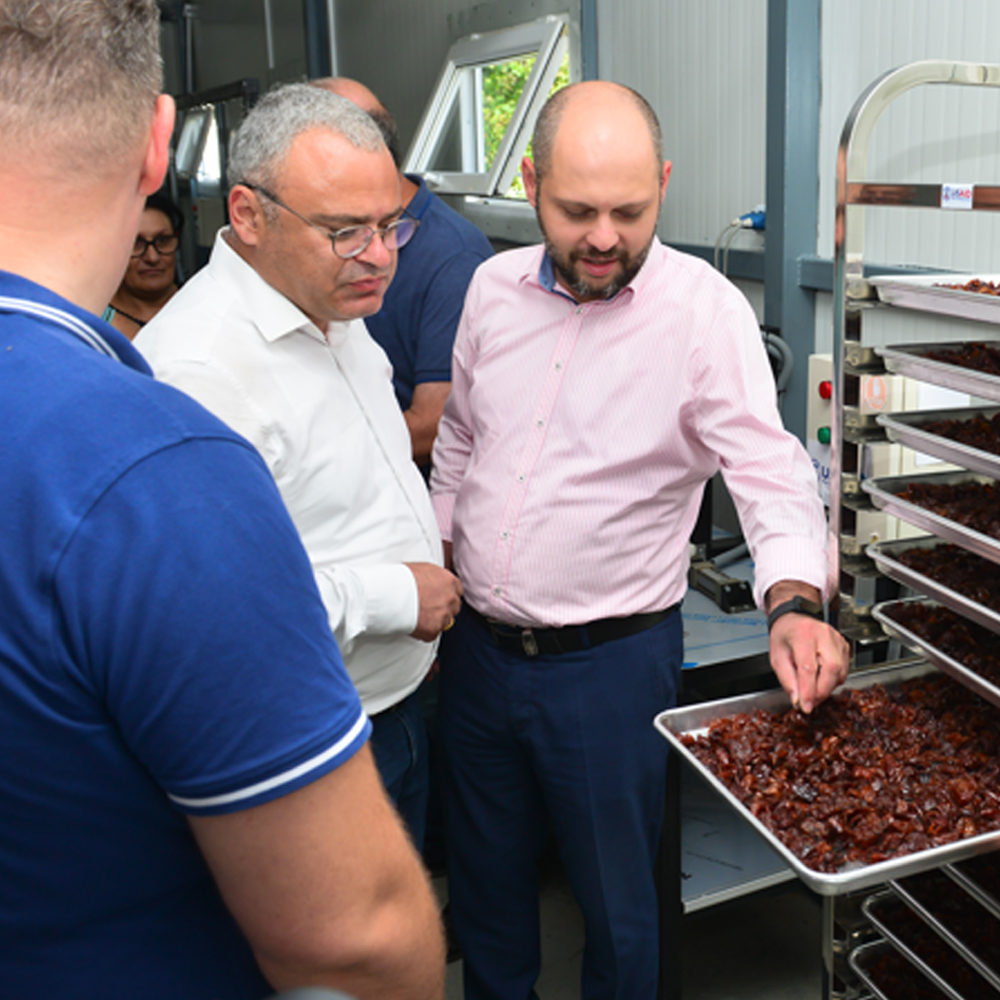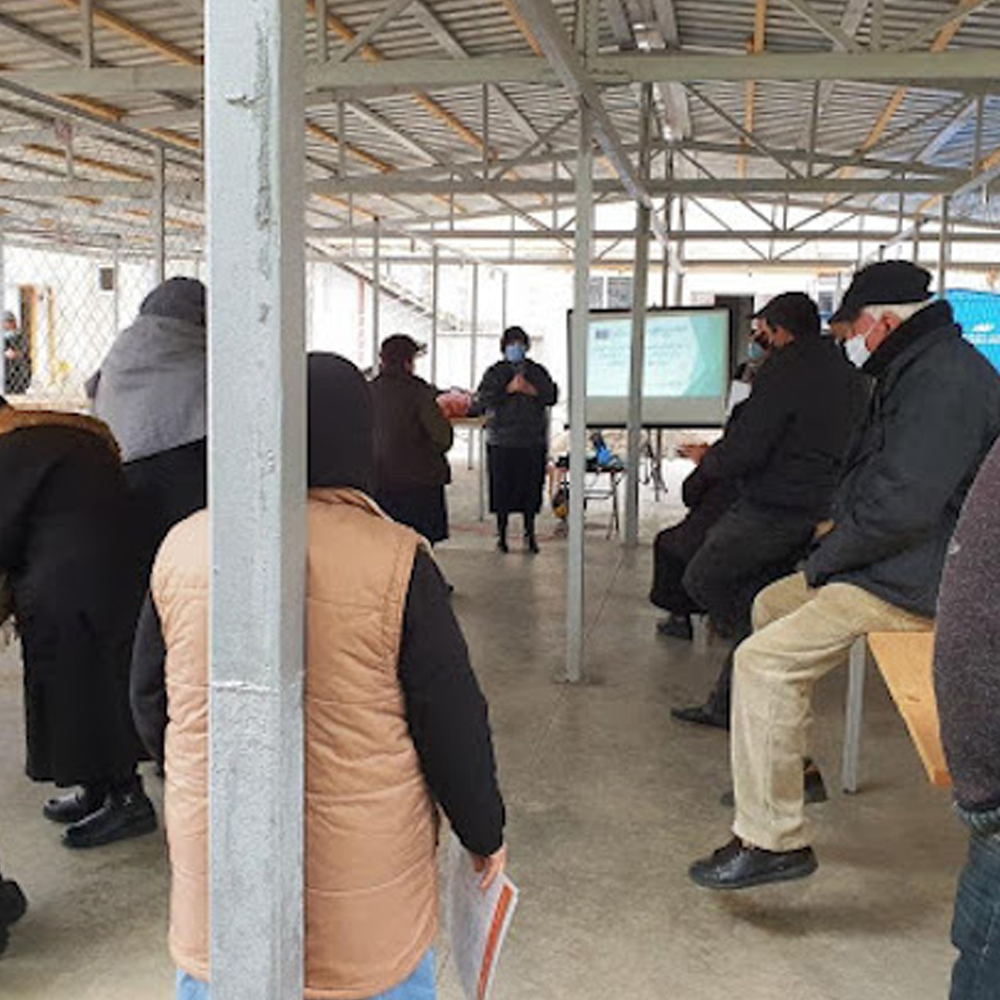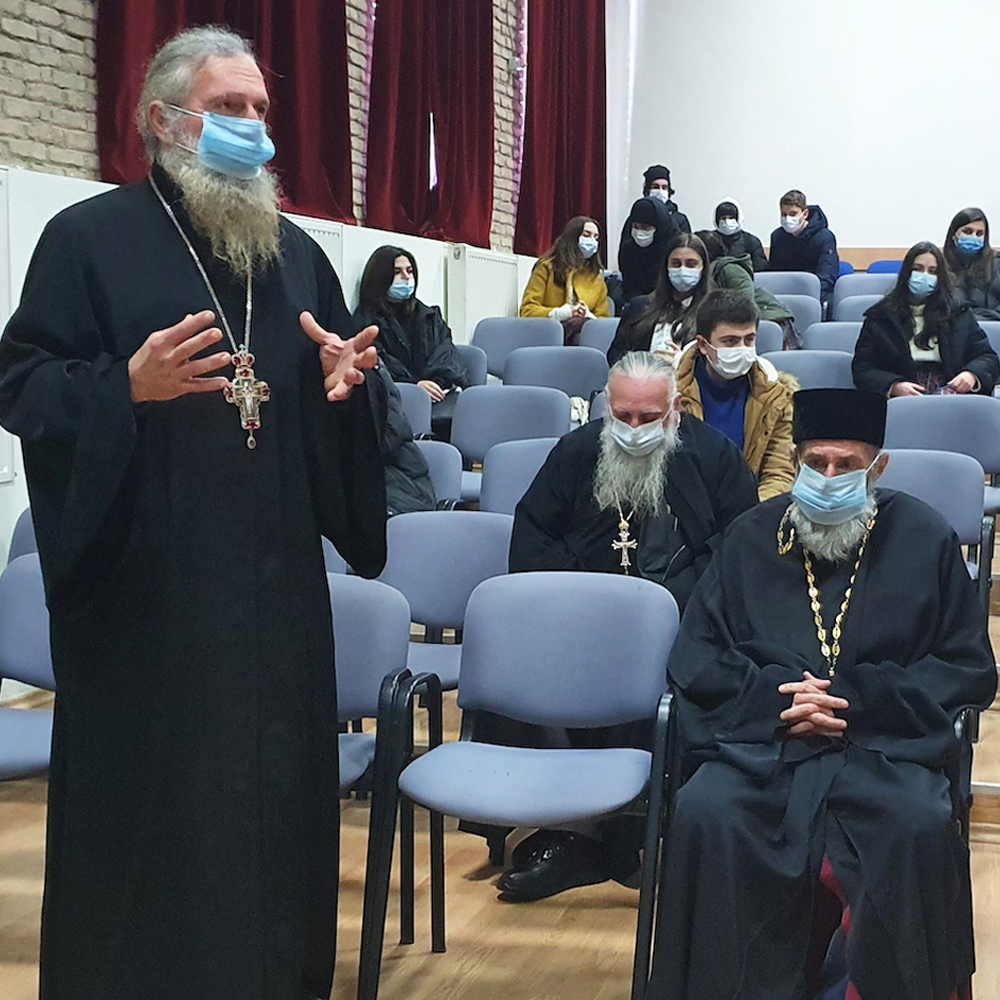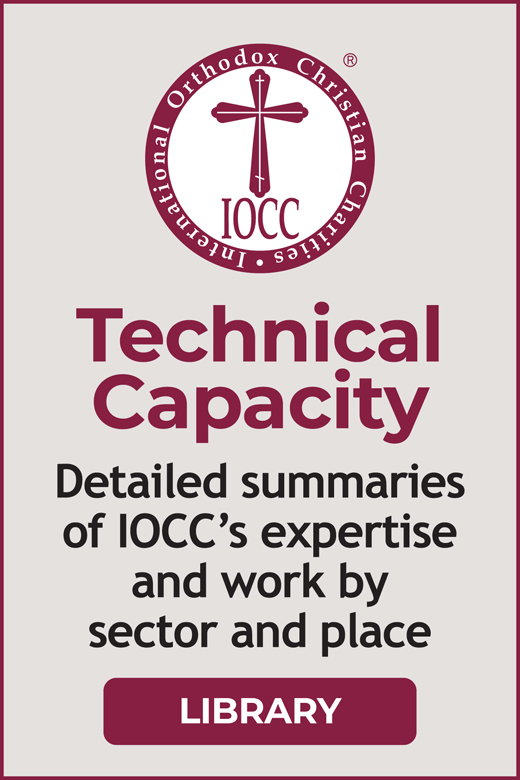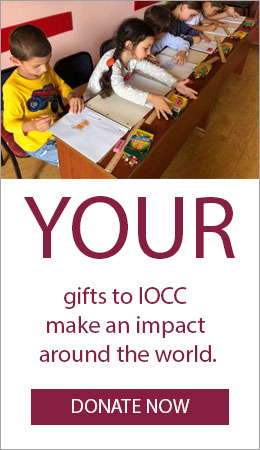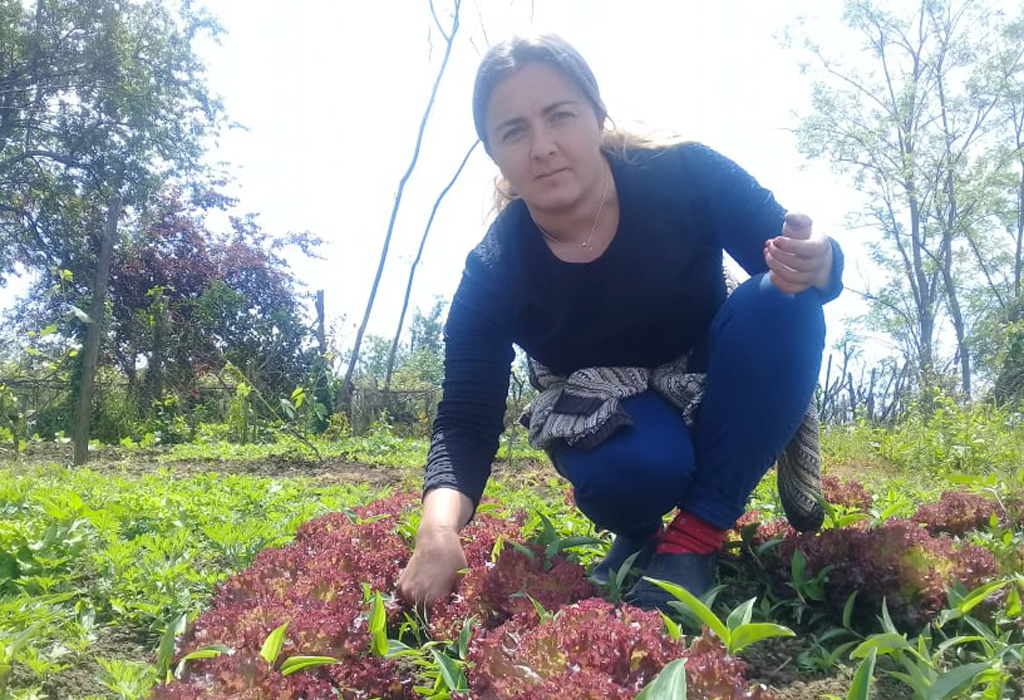
IOCC’s humanitarian presence in the country of Georgia dates from 1994, with projects assisting thousands of those displaced by conflict, and continues today. Work began with emergency response in cooperation with Lazarus, the humanitarian arm of the Patriarchate of Georgia, and has grown to promoting sustainable development for families and individuals.
Investing in Sustainable Agriculture
In West Georgia, IOCC helps small farmers improve production and increase the value of their products by providing greenhouses and solar dryers to prepare herbs and other produce for a year-round market. The greenhouses are built locally using custom-designed frames. In addition, IOCC is introducing crop diversification and helping farmers start open-fiend vegetable production. IOCC has trained 120 farmers on adapting agriculture techniques to environmental shifts, innovative technologies, and connecting with strategic partners and markets in their communities.
Gifts in Kind
Since 2017, IOCC has helped Church-run medical and social institutions and public hospitals with over $5 million worth of medical supplies like surgical gloves, syringes, blood-sample vials, and hospital beds. Amid the COVID-19 pandemic in 2020, IOCC delivered two containers with medical supplies (including face masks and gloves) to the Patriarchate-run hospital in Tbilisi and the Diocese of Batumi and Lazeti for distribution to public hospitals.
Emergency Response and Livelihoods
The conflict of the early 1990s displaced some 300,000 people in Georgia alone. IOCC and Lazarus organized food distributions and 22 soup kitchens to serve those in need. An IOCC/Lazarus project employed 300 displaced women to produce blankets that were then distributed to others facing hardship. From 1995 to 2000, the project yielded some 10,000 blankets and 5,000 mattresses.
Microcredit Lending for Big Returns
Sometimes a little boost makes an outsize difference. IOCC’s microcredit program for small businesses in Guria and Poti disbursed over $700,000 between 2000 and 2007. With a repayment rate of nearly 98%, the project helped strengthen communities economically.
Health and COVID-19
Since mid-2020, working with the World Health Organization and the Georgian government, IOCC has organized trainings in West Georgia to raise awareness about preventing the spread of COVID-19 and the benefits of vaccination. The focus has been on hundreds of essential workers, most at risk for exposure, such as long-haul truck drivers, taxi drivers, nursing home staff, and farmers’ market workers. In addition, because of their community influence, hundreds of faith leaders from different religions have also participated in the trainings.
Your Gifts at Work
Innovative Greenhouses Multiply Harvests, Income
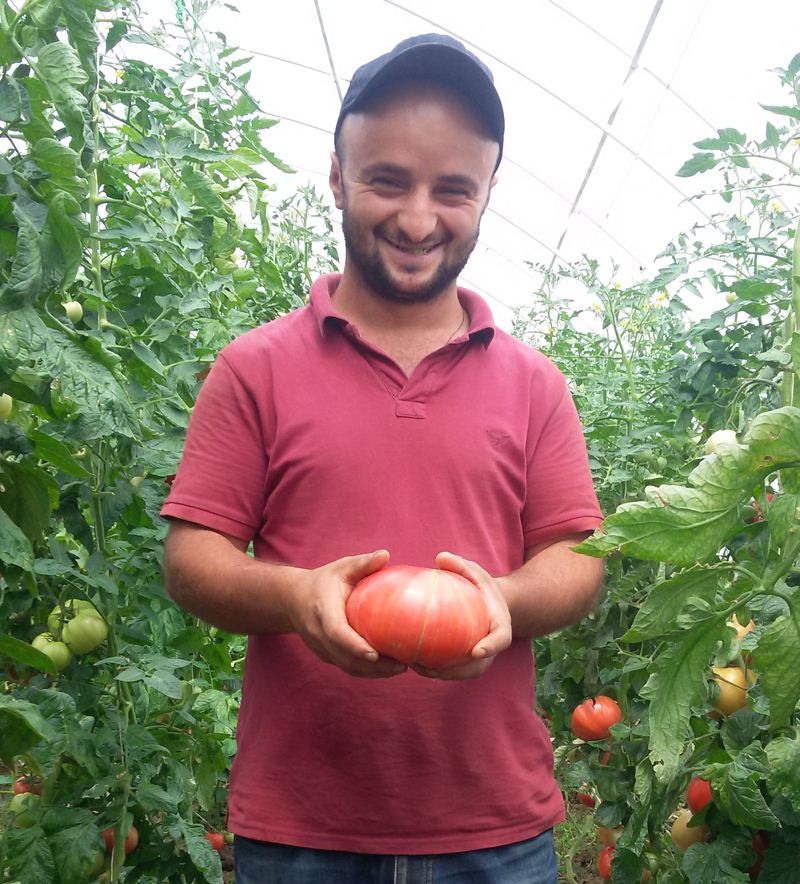
IOCC is helping local farmers in Poti while expanding the local Orthodox Church’s ability to serve the community.
The Eparchy of Poti and Khobi runs a soup kitchen under His Grace Metropolitan Grigoli of the Patriarchate of Georgia, and a nearby stretch of land (donated to the Patriarchate) has geothermal springs beneath the surface. IOCC staff envisioned a year-round garden to take advantage of this natural formation and improve the variety of foods in the soup kitchen.
In 2017, the IOCC Foundation funded four low-cost greenhouses (the first of their kind in the region) atop the geothermal formation. Instead of purchasing preformed frames at market price, IOCC built a portable machine to bend ordinary pipes.
Recognizing the potential of vegetable production, in 2020, the diocese built an additional greenhouse that is used mostly for seedlings. In the four original structures, tomatoes and cucumbers now grow. With the income from selling the produce, the diocese continues to support its soup kitchen and local people in need.
Maximizing Potential
- Strategic construction to optimize geothermal heat
- Community ownership
- Education & jobs training
- Steady income in growing sector
- Sustainable model
Learning for Long-Term Growth
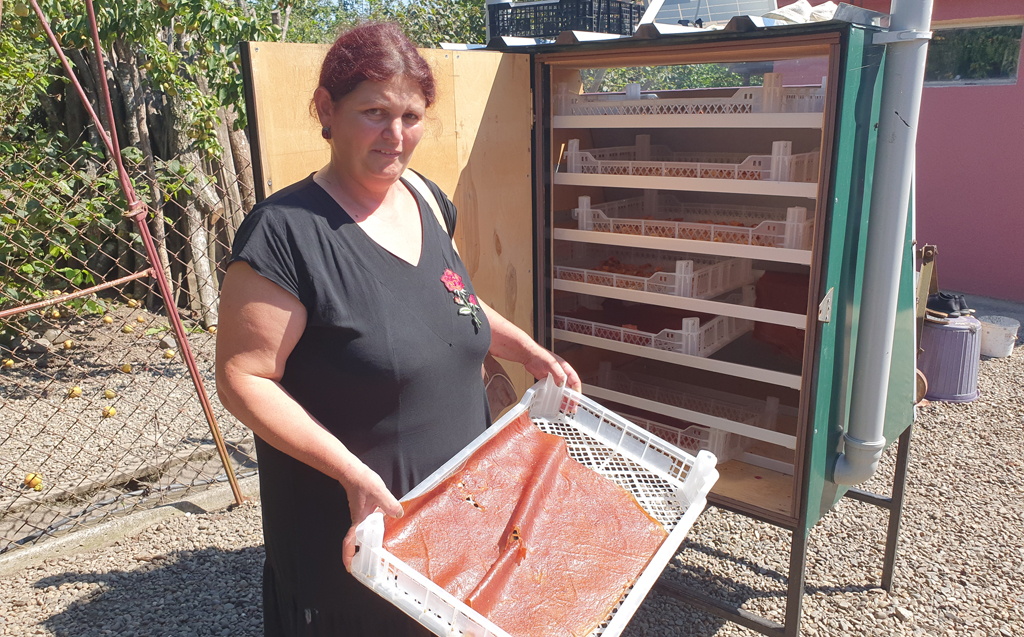
IOCC has helped smallholder Georgian farmers—especially women, youth, and displaced people—grow their agricultural repertoire.
Funded by the IOCC Foundation, the project taught sustainable farming techniques. Trainees lived across communities in Khobi and Zugdidi, which are especially rural and underserved.
A workshop trained over 95 participants—mostly women—in drying and processing local produce, including persimmons, kiwis, oranges, and sweet and chili peppers. “Producer groups” of four households each received a solar-powered dryer, which they could use to dry their harvests.
“Someone in heaven decided to help me and my family,” said Mariam, a Zugdidi participant who lives with her family in temporary housing provided by the government. Her husband worked short-term construction jobs whenever he could, but income was unreliable. Even with help from family, providing for their four children was a challenge.
Mariam dreams of having their own home and told staff she was excited about earning additional income. Dried goods fetch a much higher price than fresh produce and can be sold year-round because they last in storage—allowing for steadier earnings. While things like music lessons for her kids have always been out of reach, Mariam now sees new possibilities for the future.


